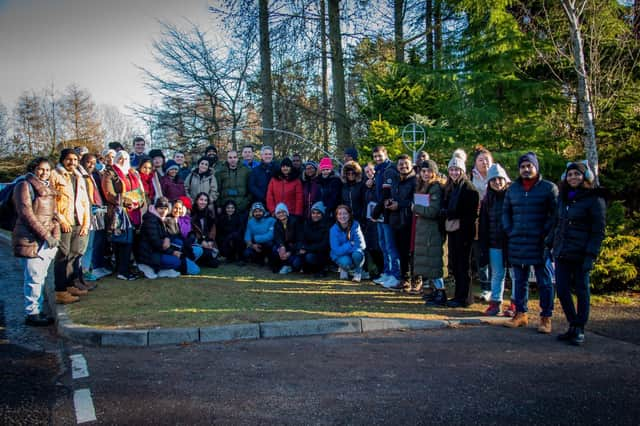Angus study helping to shape national planning policy


Postgraduates from the MSc Spatial Planning course at the University’s Duncan of Jordanstone College of Art & Design have been working with Angus Council to explore how the concept can be incorporated into rural contexts.
They take a place-based approach to reducing inequality and meeting net zero carbon emission targets. The Scottish Government has given its backing to 20MNs by incorporating the principle in its most recent National Planning Framework.
Advertisement
Advertisement
As a result, it is now policy to promote and facilitate the application of connected, compact neighbourhoods where people can meet the majority of their daily needs within a reasonable distance of their home, preferably by active or sustainable transport options.
This is particularly important given the projected growth of Monifieth and its surrounding villages in the future.
Dr Husam AlWaer, course director ,said: “At their heart, 20-minute neighbourhoods are about inclusivity. Our partnership with Angus Council has allowed our students to explore and test the ideas they generated.
"Their focus has been to address the challenge of accommodating growth, particularly of housing and other community facilities, whilst helping to make a great place within a connected community concept.”
Advertisement
Advertisement
Dr AlWaer continued: “Each group contributed to the research, planning and design capability within a rural context, producing creative content that can explore and address real problems and be used in the preparation of the new Local Development Plan.
“This encouraged students to explore place themes related to rural housing, density, health and well-being, connectivity and street design, landscape and identity, local economy, as well as cultural and perceptual aspects.”
The brief specifically challenged students to explore how Monifieth and the nearby smaller settlements can work together to produce connected communities, including making the town centre work better by improving links to and from it.
The issues and solutions identified included the new planning requirements and the potential for Angus’s villages to accommodate new growth to help support existing facilities and services. The students produced innovative solutions on how to do this while taking into account the drive to be Net Zero by 2045 and impacts on nature within this part of Angus.
Advertisement
Advertisement
Jill Paterson, Angus Council’s chief Planner and service leader, said: “The collaboration was key to providing us with new ideas on how to implement many of the new requirements of the Planning (Scotland) Act 2019 and National Planning Framework 4 for the next Local Development Plan.
"It also gave the students practical experience on working on real life planning and placemaking issues."